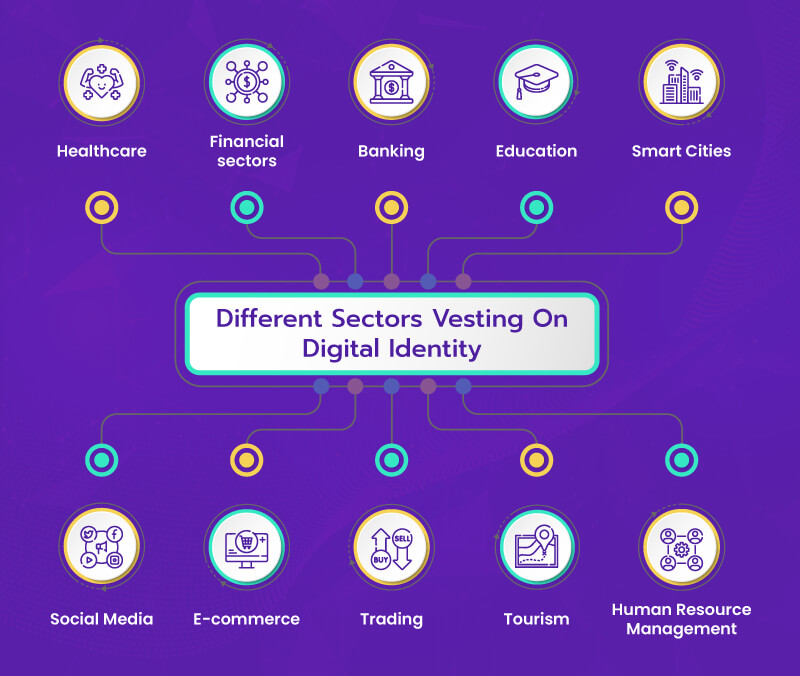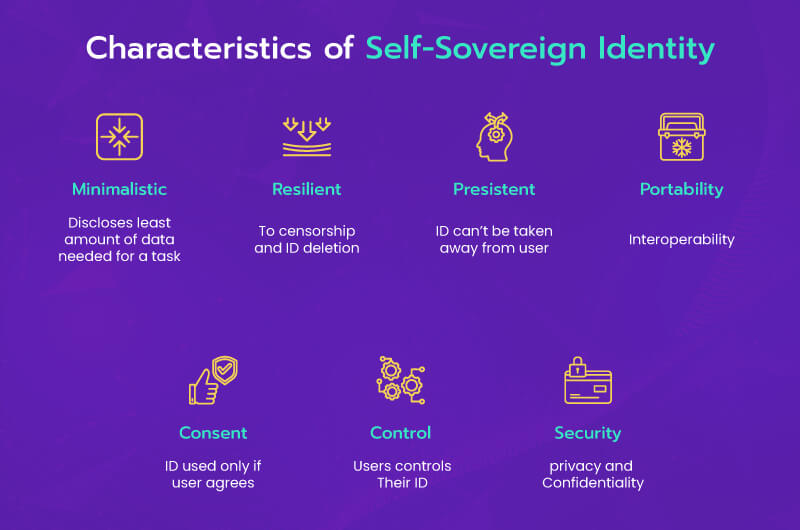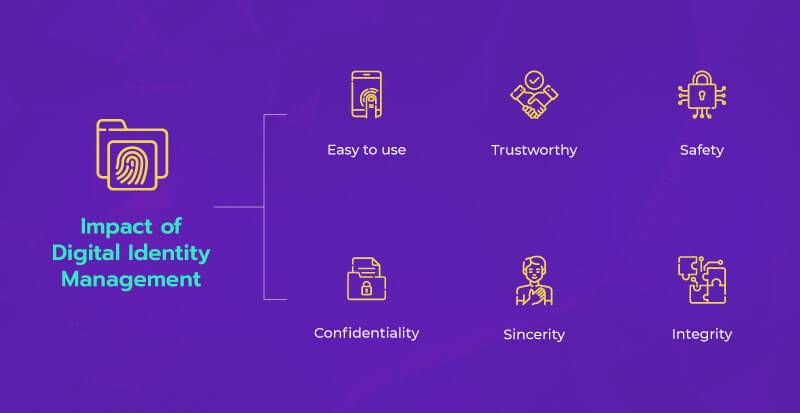Top Benefits Of Incorporating Blockchain Based Digital Identity
15 SEPTEMBER, 2023“Who are you?” with a lot of perspectives to answer, for a person in this world. In general, it's one person with different identities to match different social groups. (s)he is one but there are a lot of personalities to showcase on varied social media. Every platform has its cause, and its highlights also vary. This has been a boon and ban in society evolving with digital transformations. A lot of fakes, filters, and saturation, affect individuals in a variety of sectors. While Blockchain is here as a recovery from this chaos. Blockchain-based identity with its decentralized and immutable approach is secure and takes a stand on privacy issues. Let us here check on the benefits of Blockchain-based identity management systems from an organizational perspective.

What Is Blockchain-Based Digital Identity?
In general, the term Blockchain-based Identity refers to blockchain technology to establish and manage digital identities, to securely and efficiently handle them in an open space. Relying on traditional centralized authorities, and third-party verification systems, are more likely to place hands on the data and cause serious impacts on identity management, lack of security, and privacy. Let it be in any organization, data breaches in the system can never be a good set for which blockchains with their immutable and decentralized approaches stand by the systems.

Benefits Of Blockchain-Based Identity Management
1. Security and Privacy
Blockchain Technology is highly secure and provides the user with a tamper-proof system to manage identities effectively. The Blockchain’s decentralized nature ensures the data is not stored in a centralized repository and is not vulnerable to hacking by unbothered accesses. In addition to its decentralized nature, the cryptographic techniques protect the user data and make it difficult for third-party invasion, especially securing from malicious actors who alter or steal identities.
2. User Control and Consent
Blockchain-based identity management systems allow individuals to leverage more on their data, taking authority and ownership of their personal information. The user can allow permission, revoke, and update data and information based on their need and preferences where their identity is on a need-to-know basis. This ensures that only the authorized entity can take control of the data and information on the system. Giving the upper hand to the individuals for their data shall ensure security, and precise information and avoid misusing the same.
3. Interoperability and Efficiency
Blockchain-based digital identity is more interoperable than traditional identity management systems. The central system is free in terms of allowing individuals to create multiple accounts and undergo identity verification processes for different services. Blockchain-based identity solutions streamline this process by creating a unified, interoperable identity that is easy and can be used across various platforms and services. This improves user experience, reduces redundancy, and enhances operational efficiency.
4. Reduces Identity Fraud
Blockchain's immutability and transparency make it difficult for fraudsters to manipulate or forge identities. Bringing in blockchain-based identity makes the information stored on a blockchain tamper-proof. In terms of any changes or updates, it can be tracked and verified. This reduces the risk of identity theft, document forgery, and other fraudulent activities associated with traditional identity management systems.
5. Enhanced Trust and Auditability
The major benefit of blockchain-based identity management is that Blockchain technology provides a transparent and auditable system. Every transaction and update related to identity is informed in the ledger recorded on the blockchain. This creates an immutable audit trail, increasing trust between users and all other service providers, and they can verify the authenticity, and integrity of identity data.
6. Simplified KYC/AML Processes
Know Your Customer (KYC) and Anti-Money Laundering (AML) processes are critical in various industries ensuring compliance with regulations and preventing unwanted activities. Blockchain-based identity management can simplify and streamline these processes by securely sharing verified identity information among multiple entities. This reduces duplication of efforts, speeds up onboarding processes, and improves regulatory compliance.
7. Empowering the Unbanked and Undocumented
Blockchain-based identity benefits manage, and have the potential to provide identity solutions to individuals who lack traditional forms of identification. This includes marginalized populations, refugees, and individuals in developing countries who may not have access to official identification documents. By leveraging blockchain's decentralized and inclusive nature, these individuals can establish verifiable digital identities, opening up opportunities for financial inclusion, access to services, and social empowerment.

Investing in the Benefits Of Blockchain Identity Management: Turnout?
Investing in the benefits of blockchain based identity management is an attractive element for your business operation, the swindles, and helps in maintaining the authenticity of your brand and business. With improvements coming our way relevant to Blockchain, the opportunities here are amazing and expanding. In terms of Privacy, security, efficiency, data transparency, and control, to manage, maintain, and do the best with it, of course businesses can leverage this. Benefits not just organizations and sectors, also it can also bump with individuals trying to establish in a safe space. Reach out to BlockchainX to explore more and invest for the better good!